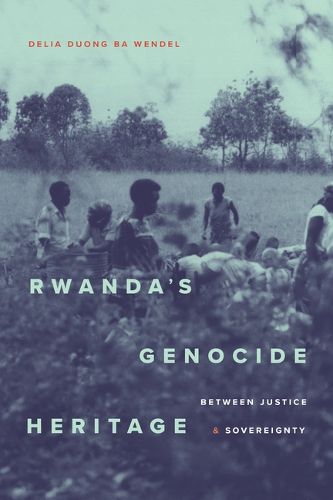Readings Newsletter
Become a Readings Member to make your shopping experience even easier.
Sign in or sign up for free!
You’re not far away from qualifying for FREE standard shipping within Australia
You’ve qualified for FREE standard shipping within Australia
The cart is loading…






In Rwanda's Genocide Heritage, Delia Duong Ba Wendel contends with the forms of justice and sovereignty enacted through sites of violent memory. Drawing from oral histories and a newly available visual archive of memory work after the 1994 genocide in Rwanda, she explores the human rights and government priorities that preserved killing sites and victims' remains for public display. Rwanda's genocide memorials exemplify a global phenomenon that Wendel terms "trauma heritage," wherein hidden or unrecognized violence is spatialized--made visible in public space--to demand justice and recognition. She argues that trauma heritage innovates on the form histories take by "writing" them into landscapes, constituting a reparative historiography from the Global South. Among those sites, Rwanda's genocide heritage comprises exceptionally visceral sites of truth-telling that highlight the politics of a past made present. Wendel demonstrates that such sites of memory require reckoning with the ethical and political dilemmas that arise from viewing violence as forms of repair and control.
$9.00 standard shipping within Australia
FREE standard shipping within Australia for orders over $100.00
Express & International shipping calculated at checkout
In Rwanda's Genocide Heritage, Delia Duong Ba Wendel contends with the forms of justice and sovereignty enacted through sites of violent memory. Drawing from oral histories and a newly available visual archive of memory work after the 1994 genocide in Rwanda, she explores the human rights and government priorities that preserved killing sites and victims' remains for public display. Rwanda's genocide memorials exemplify a global phenomenon that Wendel terms "trauma heritage," wherein hidden or unrecognized violence is spatialized--made visible in public space--to demand justice and recognition. She argues that trauma heritage innovates on the form histories take by "writing" them into landscapes, constituting a reparative historiography from the Global South. Among those sites, Rwanda's genocide heritage comprises exceptionally visceral sites of truth-telling that highlight the politics of a past made present. Wendel demonstrates that such sites of memory require reckoning with the ethical and political dilemmas that arise from viewing violence as forms of repair and control.